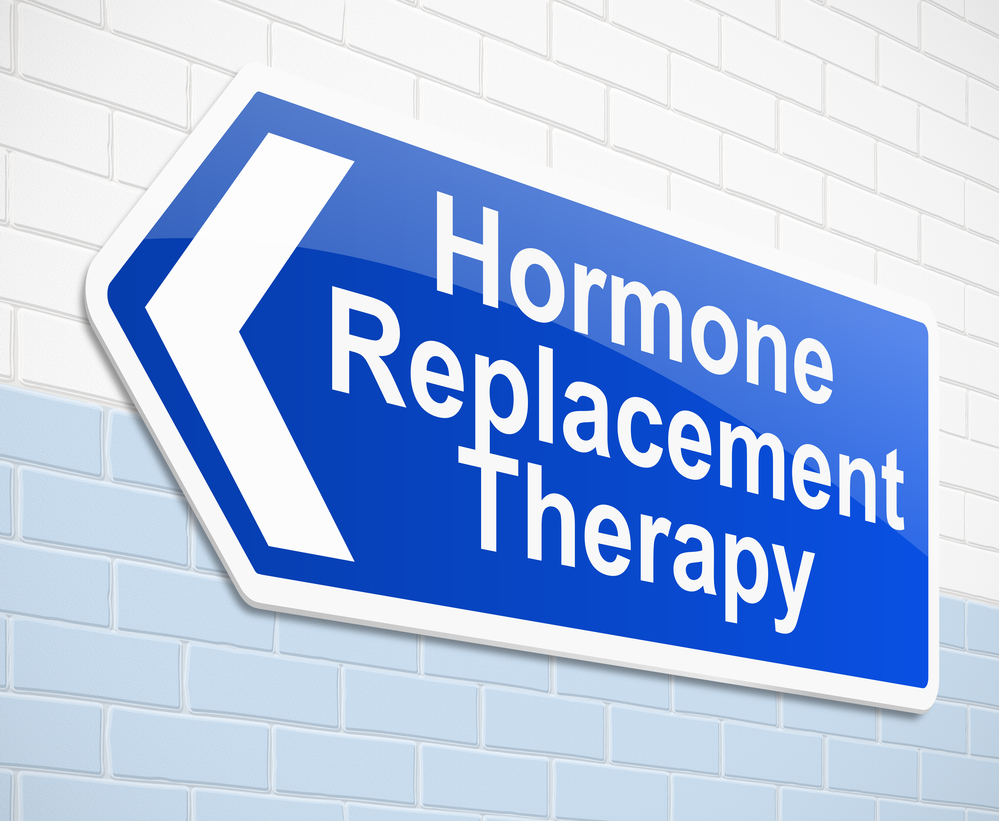Hormones control many body responses, including sexual functions, sleep patterns, and hunger, just to name a few. When you feel “off” – moody and/or without energy, for example – the problem might be a hormonal imbalance. But you don’t have to simply accept this condition and muddle through. Instead, you can ask about hormone replacement therapy in Richmond (HRT), available at Revive MD Center in Glen Allen, VA.
Explaining Hormone Replacement Therapy
Bio-Identical Hormone Replacement Therapy (BHRT) seeks to balance your body’s chemical messengers with a naturally-derived compound. BHRT is much safer than synthetic treatments because it matches the chemical composition of your body’s natural hormones. The most commonly replicated hormones are estrogen, progesterone, and testosterone.
Derived from plant estrogens, these treatments restore equilibrium and relieve symptoms. For you, this means functioning and feeling better. It may take time to see the full benefits of therapy, but some improvements will be immediately noticeable.
What to Expect
Women typically feel more confident after starting an HRT regimen. Within as little as two weeks, some patients experience deeper sleep, improved mood, and less joint pain. Sex also becomes more enjoyable, as many of the uncomfortable physical symptoms associated with hormone deficiencies are relieved. Additional benefits are experienced gradually so that you feel better as a whole.
Men typically feel heightened sexual interest within just three weeks. Joint pain usually dissipates around six weeks, and leaner body mass can develop around three months. Similar to women, other benefits happen along the way and with additional time.
How It Works
We deliver results from the inside with a customized pellet program. Customized is key because therapy will be personalized to reflect your individual needs. This means you’ll get the compounds you’re lacking to amplify your body’s natural production processes.
Signs That Treatment Can Help
Hormone levels fluctuate throughout our lives due to nature – puberty and middle-age, to name a few examples – and our environment. Primary hormones significantly decline as we age because our bodies simply stop producing them. Many times, we blame weight gain and feelings of lethargy on the hands of time, which is partly true. But the real culprit is likely a hormonal imbalance.
Your Hormones
Hormones are everywhere in our bodies. Estrogen is the main sex hormone for women, while testosterone is for men. The former does everything from protect the heart and bones to regulate fertility. Testosterone similarly influences mood, heart health, and body composition.
So, how can you know if HRT is right for you? Symptoms make themselves known in men and women alike; you simply have to know what you’re looking for, and then you can make the decision to pursue therapy.
Loss of Libido
A person’s sex drive naturally hits highs and lows over time. Sometimes, this can be blamed on relationship woes or outside stressors, like work. But a substantial and prolonged drop in interest is likely the result of deficient hormone levels.
Sexual function in men and women depends upon adequate levels of testosterone and estrogen, respectively; without these, sexual function lags. This is why desire often wanes with age. Relationships, however, depend upon the closeness that intimacy provides. If you and/or your relationship are suffering from a loss of libido, HRT may be able to help.
Changes in Mood
Mood swings typically hit women harder and more frequently than men. The link is hormones; estrogen and progesterone are known to impact serotonin levels. When they rise and fall, such as during menstruation, pregnancy, and menopause, serotonin also fluctuates.
Because serotonin helps regulate mood, among other things, this explains the swings that can inexplicably take a woman (and a man) from happy to sad. Mood changes caused by hormonal imbalances tend to involve a range of emotions, including:
- Irritability
- Crying spells
- Under- and over-sleeping
- Depression
- Anger
- Agitation
Fatigue and Insomnia
In talking about the effects of serotonin on the body, we must also discuss sleep patterns. Regulated levels of serotonin help you sleep fairly normally – excluding outside stressors. Low levels, however, cause insomnia, which can then lead to fatigue. This is how imbalanced hormones negatively affect sleep.
HRT can help balance serotonin and ultimately restore a good night’s sleep. This is important for so many reasons. Sleep helps keep you in a healthy physical and mental state. It can impact mood and quality of life and even help prevent physical injury.
Lack of Concentration
People are willing to blame a lack of focus on just about anything – weather, sleep, cabin fever – except what may be the real underlying cause. Estrogen, progesterone, and testosterone all keep the brain functioning at a healthy pace. How? By acting in the following ways:
- Protecting brain cells from free radicals
- Facilitating communication between cells
- Improving blood flow within the brain
When imbalanced, these hormones cannot serve the roles they need for normal cognition. This means an inability to concentrate at home, at work, and in social settings. In addition, men and women can be equally impacted, especially as testosterone directly influences focus and memory.
Loss of Interest
Women naturally create more stress hormones than men do. To compound the situation, high levels of progesterone keep this response system “on” so that you might constantly feel in a state of stress. This induces symptoms like a loss of interest in activities that you regularly love.
Hormone replacement therapy can reset progesterone levels and return you to a sense of calm. In turn, you’ll respond more appropriately to stressful situations and feel like once more engaging with friends and enjoying your normal routines.
Joint and Muscle Pain
In women, estrogen helps keep inflammation at bay. This is why decreased estrogen levels are often associated with increased joint pain. Any joint can be impacted, including the knees and ankles, as they are all susceptible to the body’s inflammation response.
Low testosterone can be responsible for joint pain and muscle aches in men. The cause can be explained like this: testosterone is responsible for the development of strong, healthy muscles in males. A decline in this hormone equates to a drop in muscle mass, and because muscles help support bones, the joints are also afflicted.
Constipation
Around 4.5 million Americans – most of whom are women – deal with serious problems related to constipation. By serious, we mean the effects are enough to impact other aspects of life, such as going to work and caring for family members. This can be attributed to estrogen dominance, in which progesterone levels in the body are too low and estrogen becomes the dominating hormone.
High estrogen levels can impede the body’s ability to properly empty the bowels. Constipation ensues and can cause further problems like abdominal pain and bloating.
Physical Symptoms of Hormonal Imbalance
Among the most notable of these for men and women is weight gain, particularly around the middle. Estrogen and testosterone, which we discussed earlier, both play roles in body shape and development.
In women, a dip in estrogen can lead to weight gain around the stomach, hips, and thighs. A decline of testosterone can have a similar effect on men, leading to a loss in muscle mass and a spike in body fat. While diet and exercise play critical roles in weight management, hormones have a stabilizing effect that can either help or hinder weight loss goals.
Skin Conditions
Both genders can experience acne flare-ups as a result of hormone instability. In women, a deficiency in estrogen can lead to an increase in sebum. This oily substance helps keep the skin lubricated. Too much of it, however, can clog pores and cause a few pimples, moderate outbreaks, and even severe acne, depending on how your skin responds.
In males, an overproduction of testosterone can likewise create too much sebum on the face. The result is the same: breakouts that range from mild to chronic. Many people try to scrub away their acne, but this can make it worse by stimulating more of the body’s sebum production.
Women
In total, around 80 percent of women suffer a hormonal imbalance at some point in their lives. For some, this can start as early as their 20s, with symptoms including irregular periods and infertility. This is in stark contrast to the common theory that only older women – or those who are entering menopause – have imbalances.
Physical symptoms that women commonly experience include vaginal dryness, night sweats, and hot flashes. Hair loss and cold hands and feet can also be attributed to hormones. In many cases, however, women are too embarrassed to discuss these issues with their doctors. The best way to relieve symptoms, and improve your quality of life, is to ask about HRT.
Men
In men, perhaps the most common symptom of hormonal imbalance is erectile dysfunction. This condition can have many causes, but among the foremost are high estrogen levels combined with low testosterone. The result is an inability to sustain erections, which can put a strain on intimate relationships and also severely damage your confidence.
HRT can address your body’s hormone levels and provide balance. This is key to restoring sexual performance and desire.
Benefits of HRT
An increasing number of people are reaching 100 years old, meaning that worldwide, humans are living longer than 50 years ago. We can thank modern medicine for much of this, but people are also experiencing a renewed commitment to healthy living. This means giving as much meaning as possible to your years.
Beyond Age 65
Hormone deficiencies can wreak havoc on the body, as we’ve seen by this list of symptoms. A surprising factor in this equation is a loss of bone density, which can happen to men and women. This can put people at risk for developing osteoporosis and contribute to bone fractures caused by falls.
Hormone replacement therapy can restore crucial bone health and prevent the onset of additional health problems. We already mentioned those hormones that safeguard the heart, so HRT can provide some protection against cardiovascular disease. By helping to manage weight, this treatment can also deter from diabetes and boost your confidence.
Younger Patients
The hormone imbalances that can afflict younger women include early signs of menopause. For some, these symptoms start at age 30 and continue for many years. Hormone replacement therapy can give relief to these patients and relieve complications like hot flashes, sleepless nights, and mood swings.
In younger men, this therapy can help with premature hair loss and boost low sperm counts. One out of every three couples trying to get pregnant has fertility woes owed to low sperm. HRT can help correct this and renew the excitement of planning a family.
Balanced Living
The truth is that you don’t have to live with hormone imbalances. Starting today, you can take the steps necessary to restore and revive your body. Call the professionals at Revive MD Center in Glen Allen, VA and begin a new chapter in your life.




